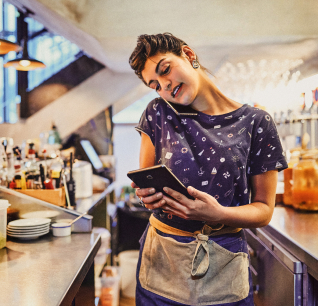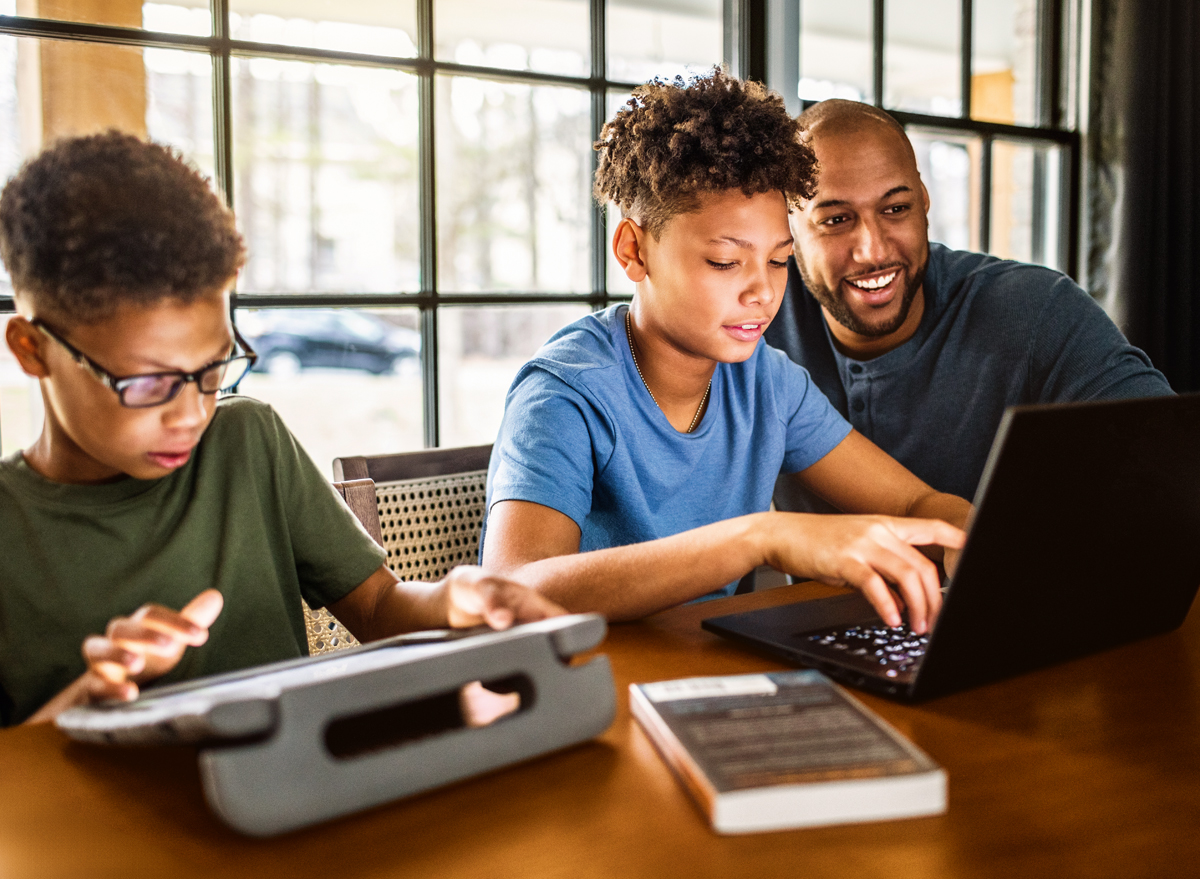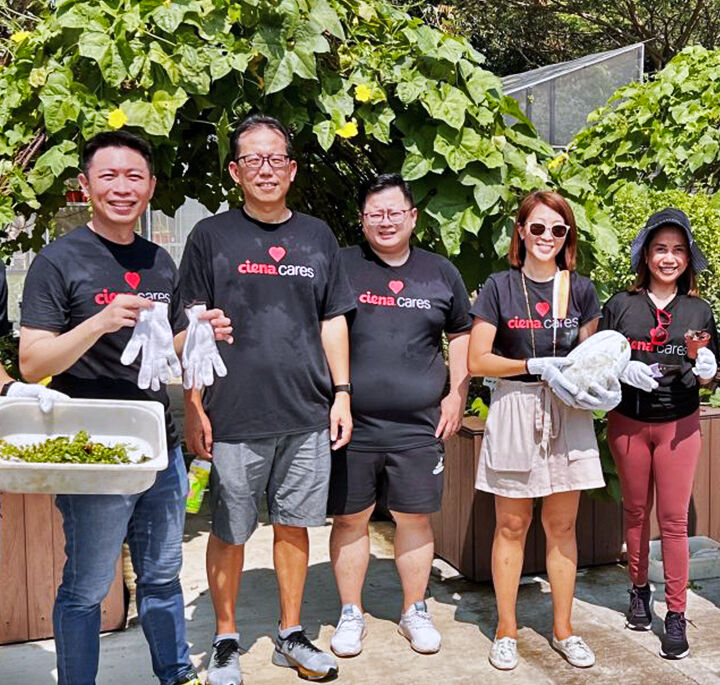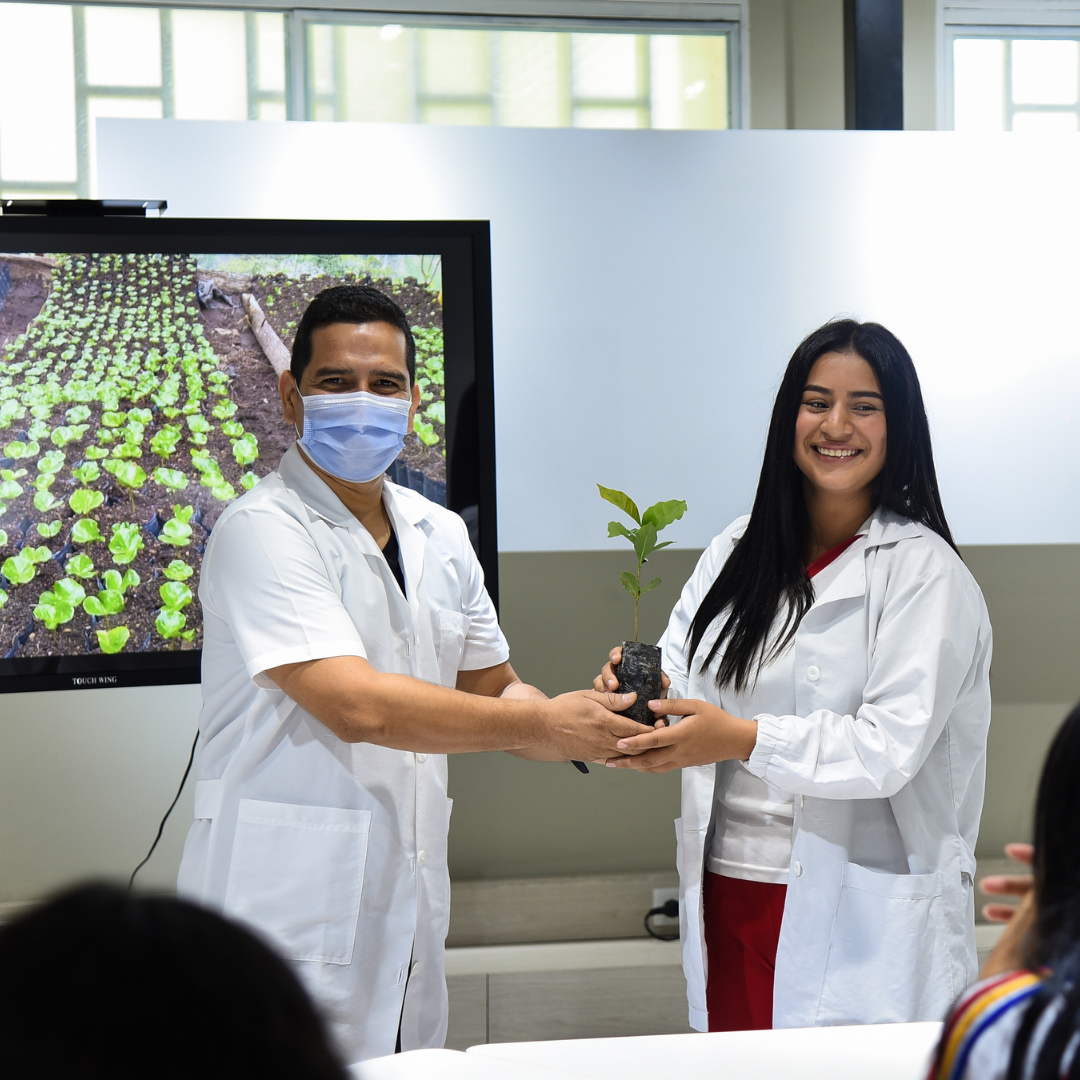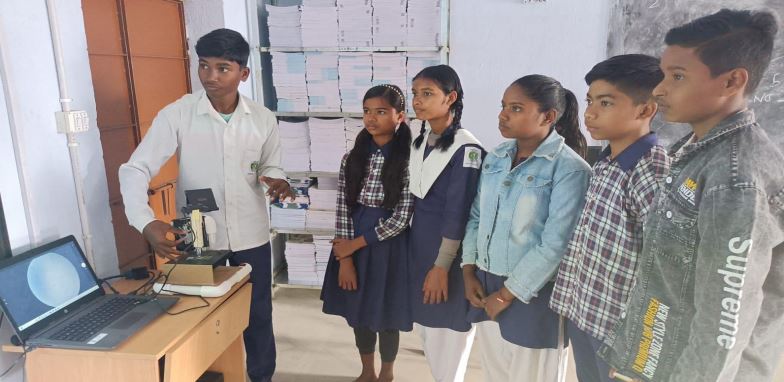Thank you to all students and educators who participated in this year’s Ciena Solutions Challenge.
We are proud to announce we have concluded another successful year of the Ciena Solutions Challenge! Once again, Ciena has provided awards of $2,500 to students and educators across 20 schools to support the sustaining or scaling of their sustainable solutions. This year, in recognition of the record-breaking number of projects received, an additional 18 prizes of $500 each were awarded to schools with projects that just couldn’t go unrewarded. Congratulations to all!
Using technology to support locally inspired sustainability projects
The Ciena Solutions Challenge is a global design challenge inviting students and teachers to design solutions to real problems and take action to build a better world. Students engage in Challenge Based Learning, which asks them to start with a big question and attempt to come up with a creative solution.
Each project is designed to work toward one or more of the UN’s Sustainable Development Goals (SDGs). Students are asked to seek inspiration from the needs of their local community in designing their sustainable solutions. For example, students in Nigeria are tackling Goal 8: Decent Work and Economic Growth with an app fighting unemployment, and students in Indonesia are working on Goal 4: Quality Education, by helping connect families with age-appropriate reading materials for children.
Students from Gandhi High Vidyala using their Frugal Scope.
How Ciena is supporting connectivity and digital skills for all students
The Ciena Solutions Challenge is a part of our Digital Inclusion social impact program. This program features a $10 million commitment to advancing connectivity and digital literacy for underserved students around the world. In addition to funding the Sustainability Awards, Ciena employees volunteer to act as judges in the evaluation of submitted projects.
Each year, dozens of employees dedicate time to carefully review each student project, providing both an assessment for an award and detailed feedback. These volunteers love seeing the creativity of students all around the world working to better their communities, and the students deeply value to advice, recommendations, and encouragement provided by Ciena’s volunteer judges. This special arrangement is rewarding and fulfilling for all involved each and every year.
A particularly exciting element of the Challenge has been the Model Schools Program. Two cohorts of schools with underserved students—comprised of three schools in Ottawa, Canada and three schools in Atlanta, USA—have been provided with grants toward technology investments. Alongside new tech for students, these schools also receive mentorship from Ciena and Digital Promise employees, offering guidance on how educators and students can get the most out of their investment.
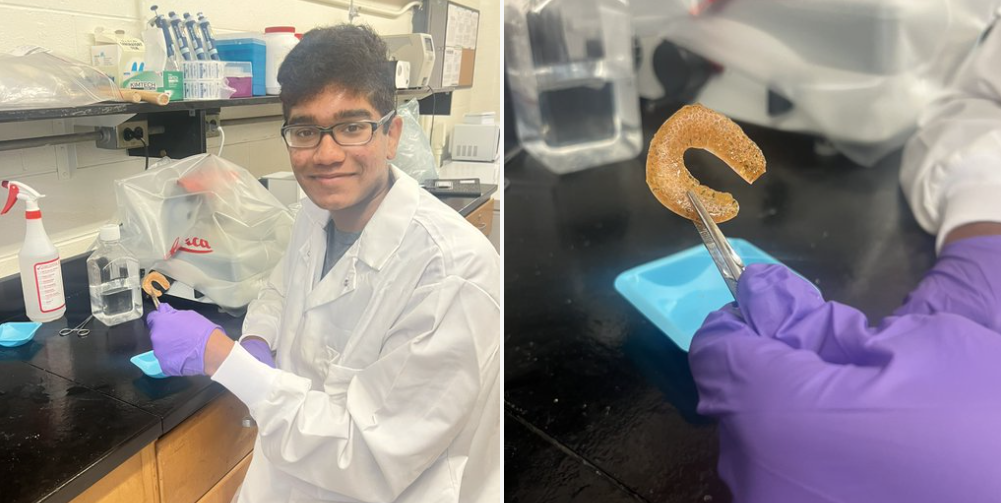
A student from American Heritage School holding a 3D printed knee implant.
Explore the winning projects
This year, the Sustainability Award winners were chosen from 51 submissions across 18 countries. These projects join more than 200 other inspiring projects that have been shared with us since the launch of the challenge in 2022. These projects represent thousands of students globally who are learning essential skills and engaging thoughtfully in ways they can help their communities.
American Heritage School – Plantation, Florida, United States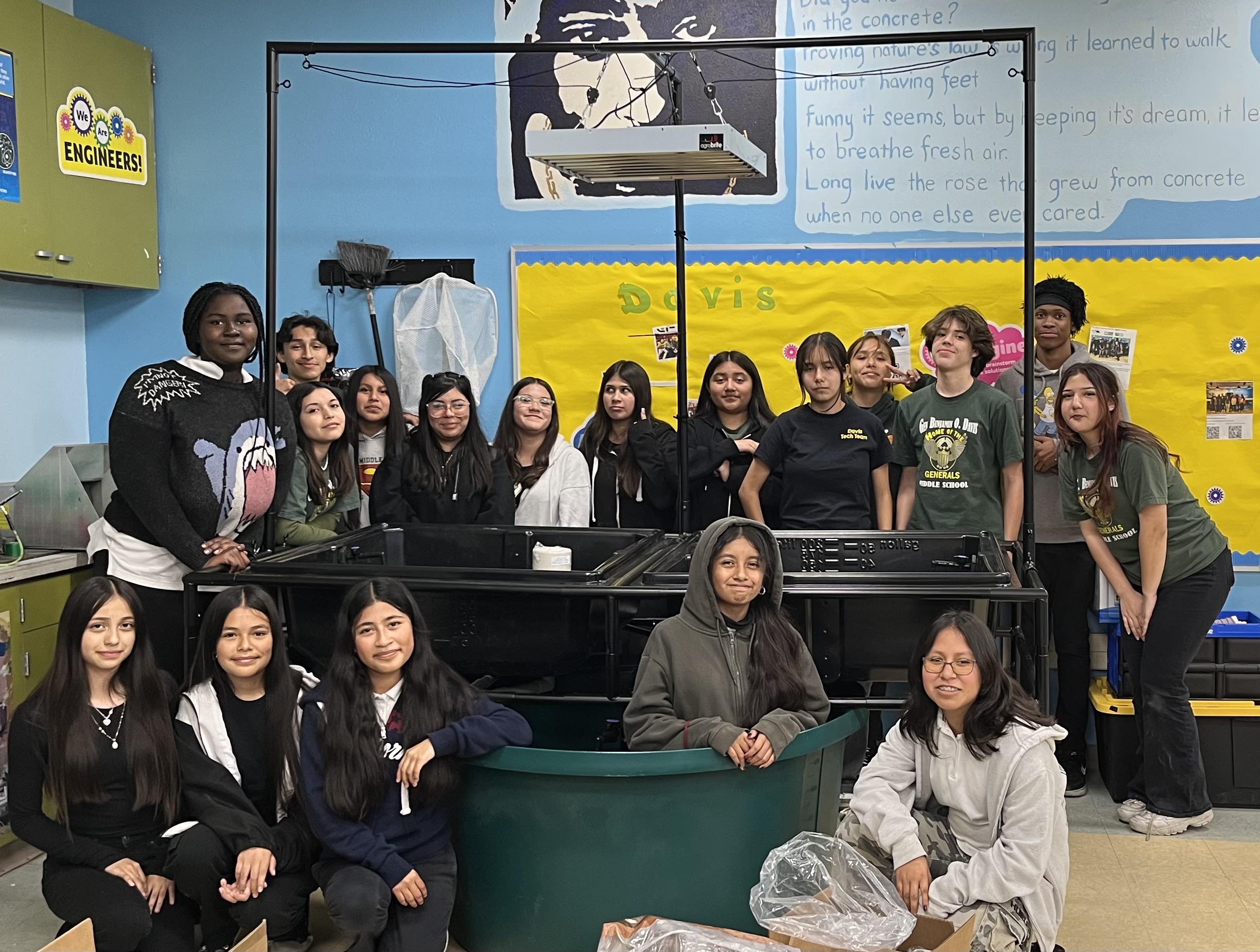
Students in this school aim to help those suffering from common knee injuries by 3D printing implants in their project, 3D printing Personalized Knee Implants: Novel Computational Geometric Models for Stem Cell Regeneration in Meniscus Tears.
Caleb British International School – Lagos, Nigeria
Solution X is an app created by students to help connect job seekers with employers in their region, thus fighting poverty and supporting decent work for all.
Colegio de Ciencias – Huánuco, Peru
Students at this school are working to Bring Men Back to Nature with their rooftop garden that grows healthy, organic food.
Davis Middle School – Compton, California, United States
With Aquaponics: Feeding the World from Confined Spaces and Green Buildings for Tomorrow, these students are exploring way to reduce hunger by using aquaponics to grow food in confined spaces.
Egba Odeda High School – Egba Odeda Community, Abeokuta, Nigeria
These students aim to solve the problem of unreliable electricity with their Household Appliances Innovation Powered by Solar project, which offers a clean and consistent energy solution.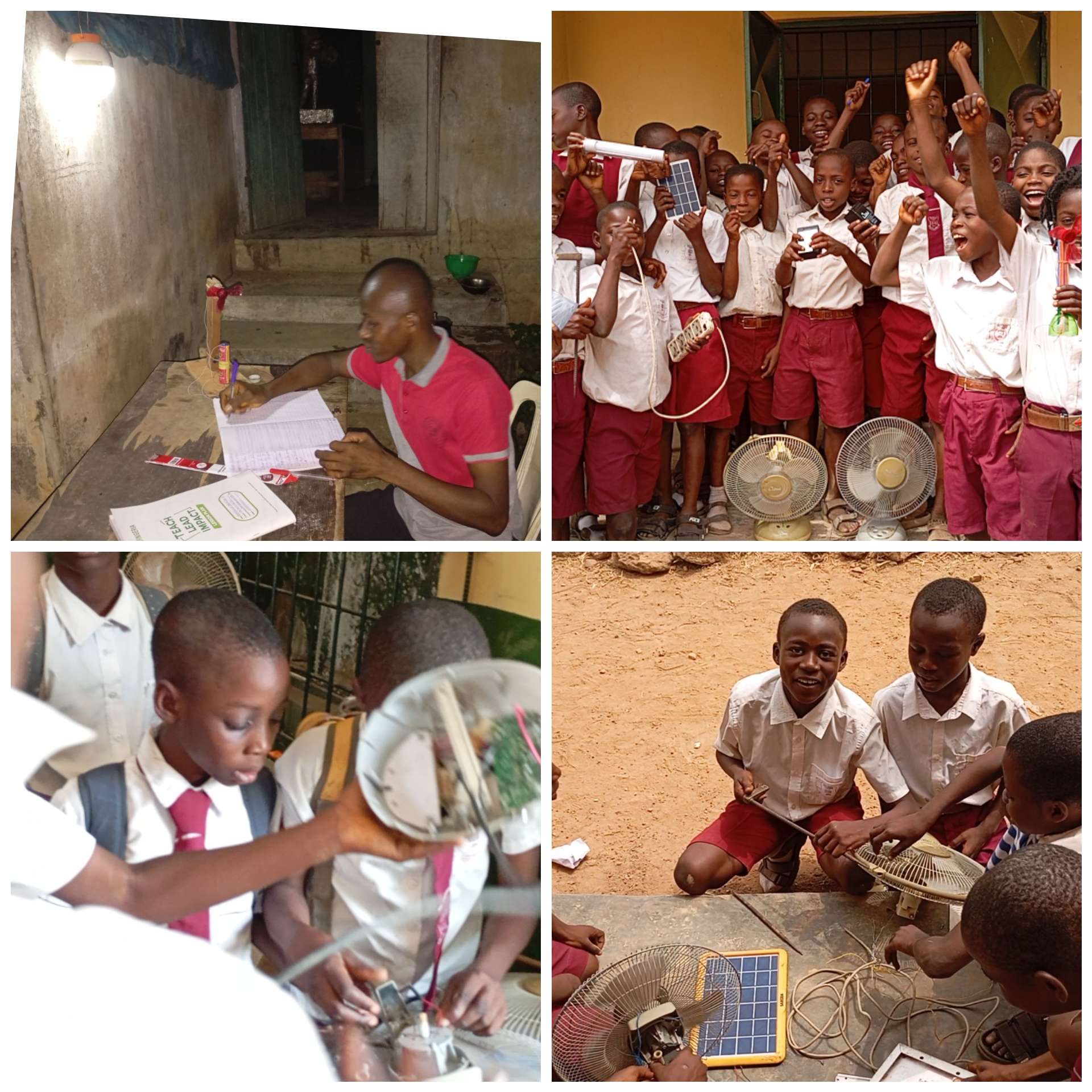
Fisher Park Summit Alternative Public School – Ottawa, Ontario, Canada
The Fisher for the Future project by these students helped raise awareness of the SDGs via student sustainable entrepreneurship.
Gandhi High Vidyalaya – Purulia, West Bengal, India
These students have enhanced their science education by creating Frugal Scopes, microscopes made from recycled waste products that can support learning for those who cannot afford more high-tech microscopes.
Government Girls Senior Secondary School – Indora (Kangra), Himachal Pradesh, India
After experiencing a major flood, these students began their project How Can I Care Earth to Ozone Layer? which explores ways to mitigate climate change.
Kamla Nehru Public School – Phagwara, Punjab, India
This school submitted two projects, Carbon Emission Predictor and Dementia Guard. Carbon Emission Predictor is an AI program that can calculate emissions and help people make environmentally-informed decisions, while Dementia Guard is an app that provides tools to ease the burden of disease upon patients and their caregivers.
Kayron International College – Sangotedo, Lagos, Nigeria
Students participating in the Sustainable Roots project have created a club that promotes sustainable farming practices, tree planting, and other eco-friendly behaviors.
Leap English And Digital – Surabaya, East Java, Indonesia
Booklens is an app that helps connect families with age-appropriate reading materials by scanning titles and automatically accessing information about the book’s content and age suitability.
Municipal Montessori Educational Institution, San Francisco branch – Pitalito, Huila, Colombia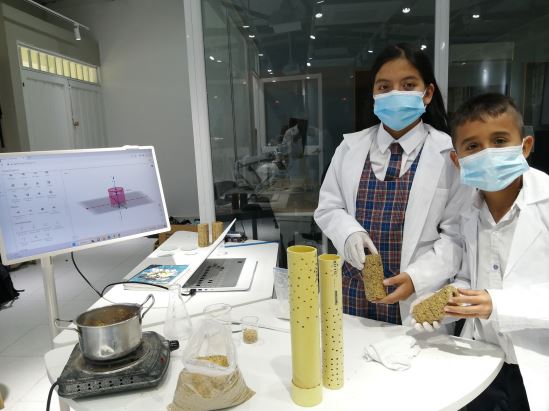
The students behind Cafelab, to Balance the Coffee Ecosystem are working to tackle the problem of waste created by the local coffee industry.
Mzwanenyi Secondary School, Olympic Secondary School, and University Of Eldoret Secondary School – Mombasa, Nairobi, and Eldoret, Kenya
These three schools came together to submit three important projects. Cultural Vibes promotes local culture and indigenous languages with an interactive website. Walkie is a smart walking stick that helps visually-impaired users navigate their surroundings safely. The Peers is an anonymous mental health resource for youth.
Nazarbayev Intellectual School in Astana – Astana, Kazakhstan
The QuickQuake Backpack is a durable backpack designed by students to contain essential goods needed during an earthquake and to withstand environmental hazards like heat or water.
Peak to Peak High School – Lafayette, Colorado, United States
This school’s project, Tree Team Myco-Remediation!, involves planting trees and remediating soil to fight natural disasters associated with climate chance.
PEI Simpliciano Campolim de Almeida – Nova Campina, Sao Paulo, Brazil
The Sustainable Tourism – Networks and Partnerships supports entrepreneurial solutions to balance the socio-economical impacts and environmental impacts of the local ecotourism industry.
Santamayee Girls High School - Purulia, West Bengal, India
These students are working to combat period poverty by making sanitary products more accessible in their school with their project, No More Limits.
Savanna Oaks Middle School – Fitchburg, WI, United States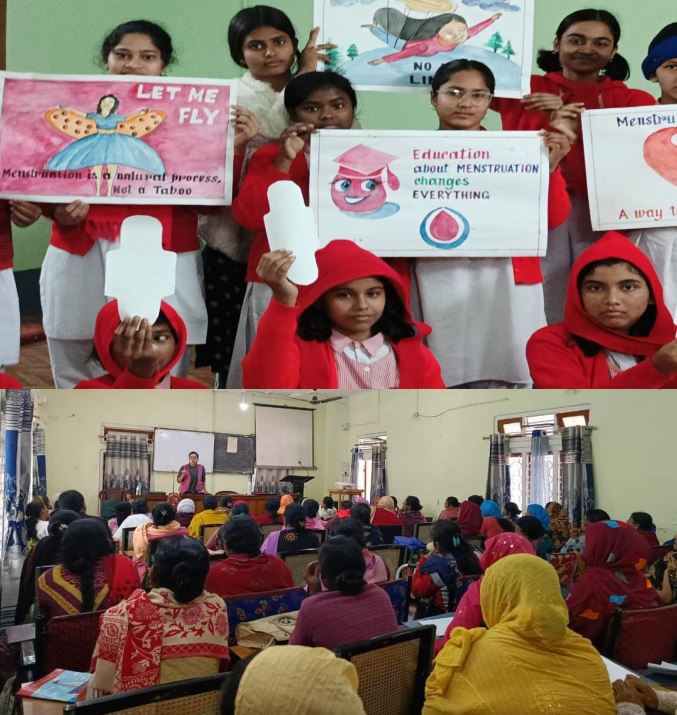
The Building a Healthy Community project encourages active living using games and activities created by students learning coding skills.
St Mary's College – Rose Hill, Mauritius
The Tecomarian Endemic Garden promotes the preservation of Mauritius’ native ecosystem by providing a beautiful way for young generations to experience nature free from littering and deforestation.
Vikas Bharati Public School – Delhi, India
This school contributed four projects! Blind Navigator aims to support safety and independence for visually impaired people. Eco Tracker helps schools reduce their carbon footprint. Wellness Venture explores the use of AI for healthcare, and finally, SHIELD: System for Halting Illegal Exploitation and Ensuring Lasting Defense for Women fights human trafficking.

